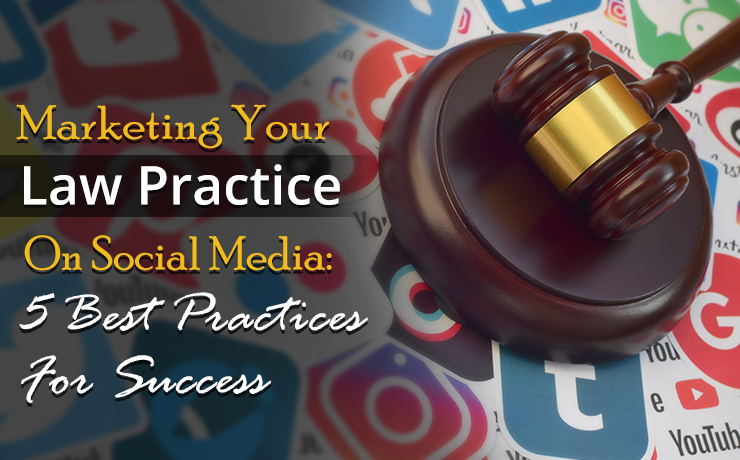Marketing Your Law Practice On Social Media: 5 Best Practices For Success

Clement Foo
Senior Digital Content Manager

In today’s dynamic digital marketing landscape, the influence of social media on the legal profession cannot be overstated. Social media marketing for lawyers has emerged as a formidable tool, offering the potential to not only establish a robust online presence but also to connect authentically with prospective clients. Within this comprehensive guide, we embark on a journey through five meticulously crafted best practices tailored exclusively for law practices. These strategies, accompanied by real-world examples, will equip you with the means to unlock the full potential of social media, elevating your legal practice to new heights in the ever-competitive digital realm.
The digital era has redefined how legal professionals engage with their audience. With the power to define your brand identity, offer valuable legal insights, foster genuine connections, showcase client success stories, and strategically amplify your reach through paid advertising, you’ll discover that social media isn’t just a marketing tool but a pathway to building trust, credibility, and lasting client relationships.
So, dive into the world of social media marketing for lawyers with confidence, knowing that this guide is your compass, navigating you toward a stronger online presence and a thriving legal practice. The potential for growth and impact awaits as you harness the power of social media to stand out in the digital realm, where authenticity and expertise are paramount.
Define Your Brand Identity
Before diving into social media marketing, it’s essential to define your law practice’s brand identity. Your brand is not just a logo; it encompasses your values, mission, and the unique value you offer to clients. Consider the tone and image you want to convey, whether it’s professionalism and authority or approachability and empathy.
If your practice specializes in family law, your brand identity might emphasize compassion, trust, and support. Your social media content should reflect these values, making potential clients feel comfortable seeking your services.
Create Educational Content
Educational content is a powerful way to showcase your legal expertise. Provide valuable information about legal topics, changes in laws, or common questions your clients may have. By sharing your knowledge, you not only build trust but also position yourself as a reliable source of legal information.
Imagine you’re a criminal defense attorney. Creating short videos or blog posts explaining key legal concepts, such as “Understanding Your Miranda Rights,” can engage your audience and demonstrate your authority in the field.
Engage with Your Audience
Social media is not just about broadcasting information; it’s a platform for engagement and conversation. Respond promptly to comments, questions, and messages. Engage in meaningful discussions, and provide guidance where appropriate. Building relationships through social media can lead to loyal clients.
If someone comments on your post with a legal question, respond with a brief answer and an invitation to reach out for a more detailed consultation. This personal touch showcases your commitment to helping your audience.
Showcase Client Success Stories
Highlighting client success stories is a compelling way to build trust and credibility. Share testimonials, case studies, or stories of positive outcomes. These real-life examples reassure potential clients that you can deliver results.
Suppose you’re an immigration attorney. Sharing a client’s testimonial describing how you helped them achieve their dream of obtaining a visa or citizenship can inspire trust in prospective clients facing similar challenges.
Utilize Paid Advertising Strategically
While organic reach is valuable, consider using paid advertising to extend your social media marketing efforts. Platforms like Facebook and LinkedIn offer targeted ad options that allow you to reach specific demographics and interests. Invest in sponsored posts or ad campaigns to reach potential clients actively seeking legal services.
If your law practice specializes in personal injury law, running a Facebook ad campaign targeting individuals in your local area who have recently been in accidents can significantly increase your visibility among potential clients seeking legal representation.
Elevate Your Legal Practice in the Digital Realm
In conclusion, social media marketing for lawyers is a potent tool for building your law practice’s online presence and connecting with potential clients. By defining your brand identity, creating educational content, engaging with your audience, showcasing client success stories, and utilizing paid advertising strategically, you can elevate your legal practice in the digital realm. These best practices are not just about digital marketing; they’re about building trust, establishing credibility, and providing valuable resources to those in need of legal guidance. Embrace these strategies, and watch your law practice flourish in the world of social media. Your journey toward a stronger online presence and a thriving legal practice begins now!
 Free
Consultation
Free
Consultation Free
Google Ads Audit
Free
Google Ads Audit







